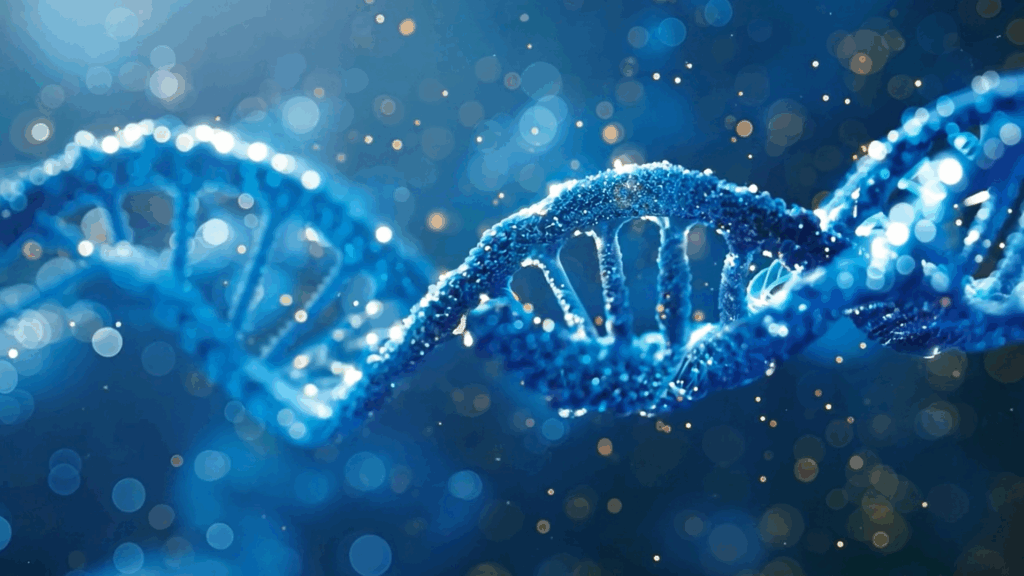QIMR Berghofer and InsideOut Institute researchers are seeking more than 4,000 Australian adults with lived experience of an eating disorder for the world’s largest genetics study, to identify genetic variants to calculate an individual’s risk of developing an eating disorder.
The Eating Disorders Genetics Initiative 2 (EDGI2) aims to pinpoint genetic and environmental risk, and protective factors that influence the development of anorexia nervosa, bulimia nervosa, binge-eating disorder and most recently, avoidant restrictive food intake disorder (ARFID), to predict who is at risk, improve personalised treatment, and ultimately, save lives.
According to Head of the Genetic Epidemiology Laboratory, QIMR Berghofer, and Lead Australian Investigator of EDGI2, Professor Nick Martin, Brisbane,the study aims to augment the groundbreaking advances made in the initial EDGI investigation and the Anorexia Nervosa Genetics Initiative (ANGI), which collectively identified the first eight genes for anorexia nervosa that implicate both psychiatric and metabolic causes for the condition.
“While research on twins reveals a substantial genetic influence on eating disorders, with genes accounting for 40-60 per cent of the variability in eating disorders, there are limited, reliable genetic and environmental predictors for disease course and outcome, to accurately inform early treatment personalisation.
“Genome wide association studies (GWAS) like EDGI and Anorexia Nervosa Genetics Initiative (ANGI), have confirmed the results of twin studies, and go further in enabling researchers to identify the particular associated genetic risk variants. These variants can be summed to calculate polygenic risk scores (PRS) which help estimate an individual’s genetic susceptibility to diseases,” said Prof Martin.
“PRS can inform earlier, more personalised treatments, predict disease progression, and assess future disease risk in unaffected individuals.
“Advancing our understanding of the genetic variants associated with eating disorders requires a concerted international effort to survey, and collect saliva samples from more people with lived experience. Replicating and expanding past studies is crucial,” Prof Martin said.
“I’m confident that with the Aussie spirit of volunteering, we’ll hit our goal of more than 4,000 EDGI2 participants.”
Clinical Psychologist, Director, InsideOut Institute, and EDGI2 Australia Chief Investigator, Prof Sarah Maguire OAM, Sydney, said EDGI2 now includes ARFID – an eating disorder marked by extreme avoidance of, or aversion to certain foods, often driven by anxiety or phobia. Although ARFID can occur at any age, it is more common in childhood and adolescence.
“ARFID involves restrictive eating that fails to meet nutritional needs. The illness is often persistent, disrupts daily life, and can lead to serious medical problems.
“ARFID is considered to be underdiagnosed, having only been added to the DSM-5 criteria in 2013, yet may be as common as anorexia nervosa and binge eating among adolescents,” said Prof Maguire.
“Further data on its prevalence and impact are urgently required, with estimates suggesting the illness affects up to one in 300 people.
“ARFID has a complex clinical presentation, often leading to missed diagnoses, and delayed treatment. ARFID identification and treatment can be complicated by frequent, co-occurring mental and somatic health issues,” Prof Maguire said.
“Feelings of shame and blame reported by parents of children with ARFID may hinder their ability to access resources and support their child.
“Including ARFID in EDGI2 builds on research demonstrating that genes play a prominent role in this illness,” said Prof Maguire.
“Knowing eating disorders have a strong genetic component can help parents realise they are not at fault, and their child’s development of the illness is likely beyond their control.”
Executive Director of Eating Disorders Families Australia (EDFA) and lived experience eating disorder carer, Jane Rowan, Brisbane, emphasises the severe impact on both the physical and psychological health of those affected.
“Eating disorders are not a choice – they are serious mental illnesses.
“Medical complications of eating disorders may include cognitive impairment, heart complications, growth retardation, and osteoporosis. The mortality rate of eating disorders is significantly higher than other psychiatric conditions, primarily due to medical complications and suicide,” Jane said. “However, recovery is possible for everyone, regardless of severity or stage of illness.
“With early intervention and a comprehensive approach that addresses the physical, psychological, and social aspects of the condition, individuals at any stage of illness can recover,” said Jane. “Advances in research, like EDGI2, that enhance understanding of genetic and environmental factors, along with early detection and personalised treatment, are key to recovery and better patient management.
“Ultimately, EDGI2 will give families the answers we’ve been seeking for so long and will help them to feel seen and supported,” Jane said.
The Australian arm of EDGI2 is seeking 4,000+ volunteers aged 18+ years, living in Australia, diagnosed with (either past or present) anorexia nervosa, bulimia nervosa, binge-eating disorder or ARFID.
Australian professional patient support services offering 24/7 helpline services include:
- Butterfly National Helpline: 1800 334 673
- Beyond Blue: 1300 22 4636 o LifeLine: 13 11 14
- Men’s Line Australia: 1300 78 99 78
- Kids Help Line: 1800 55 1800











